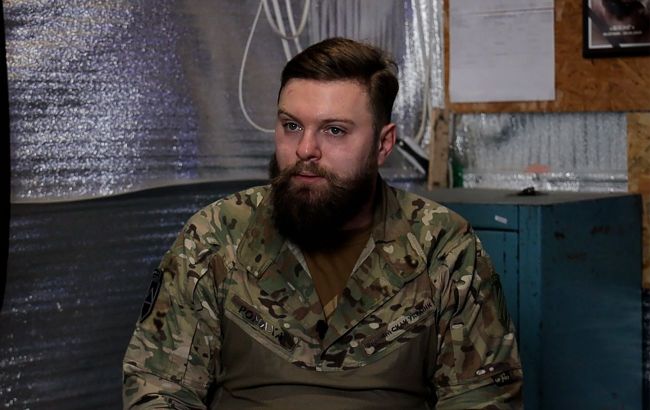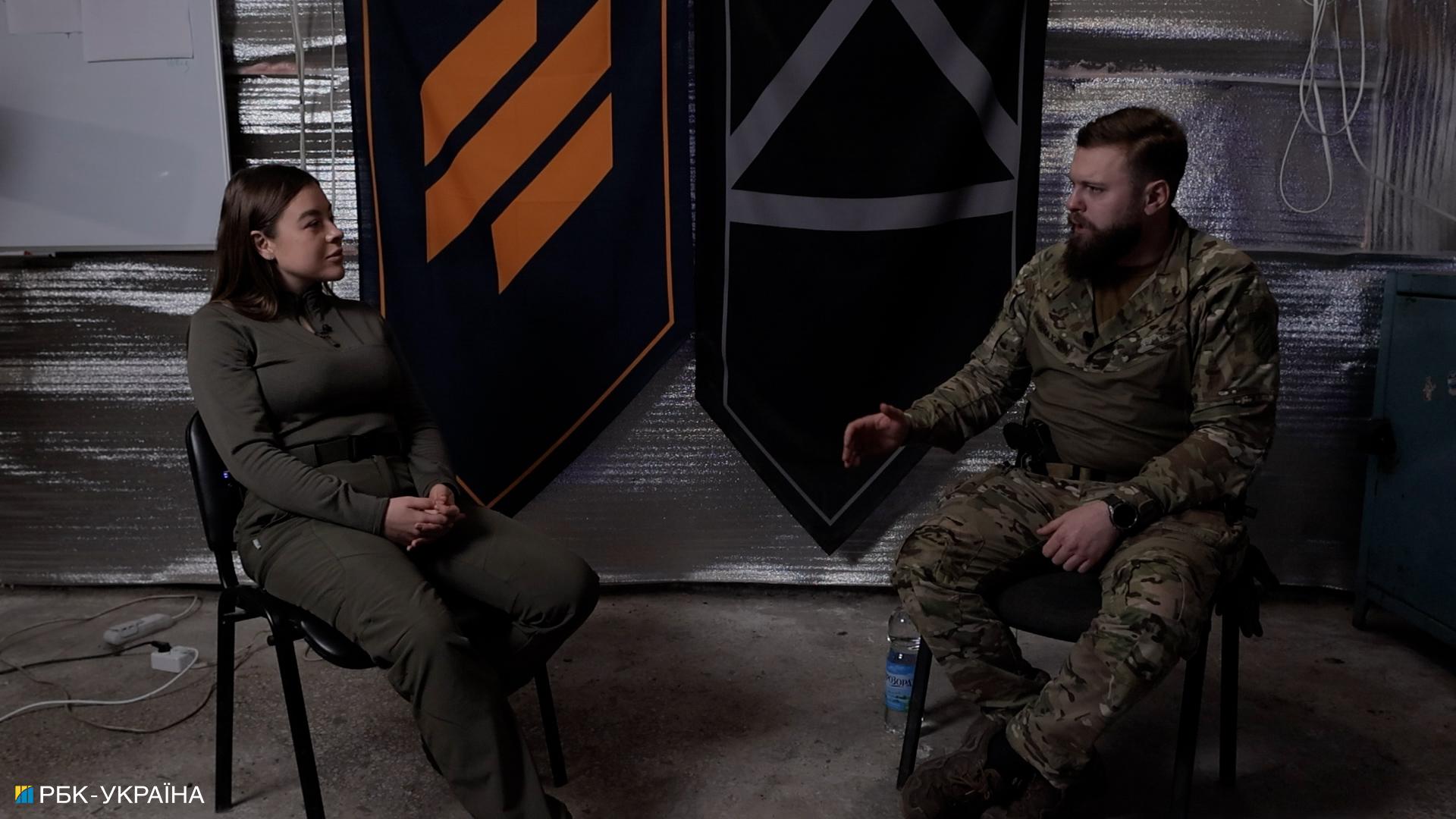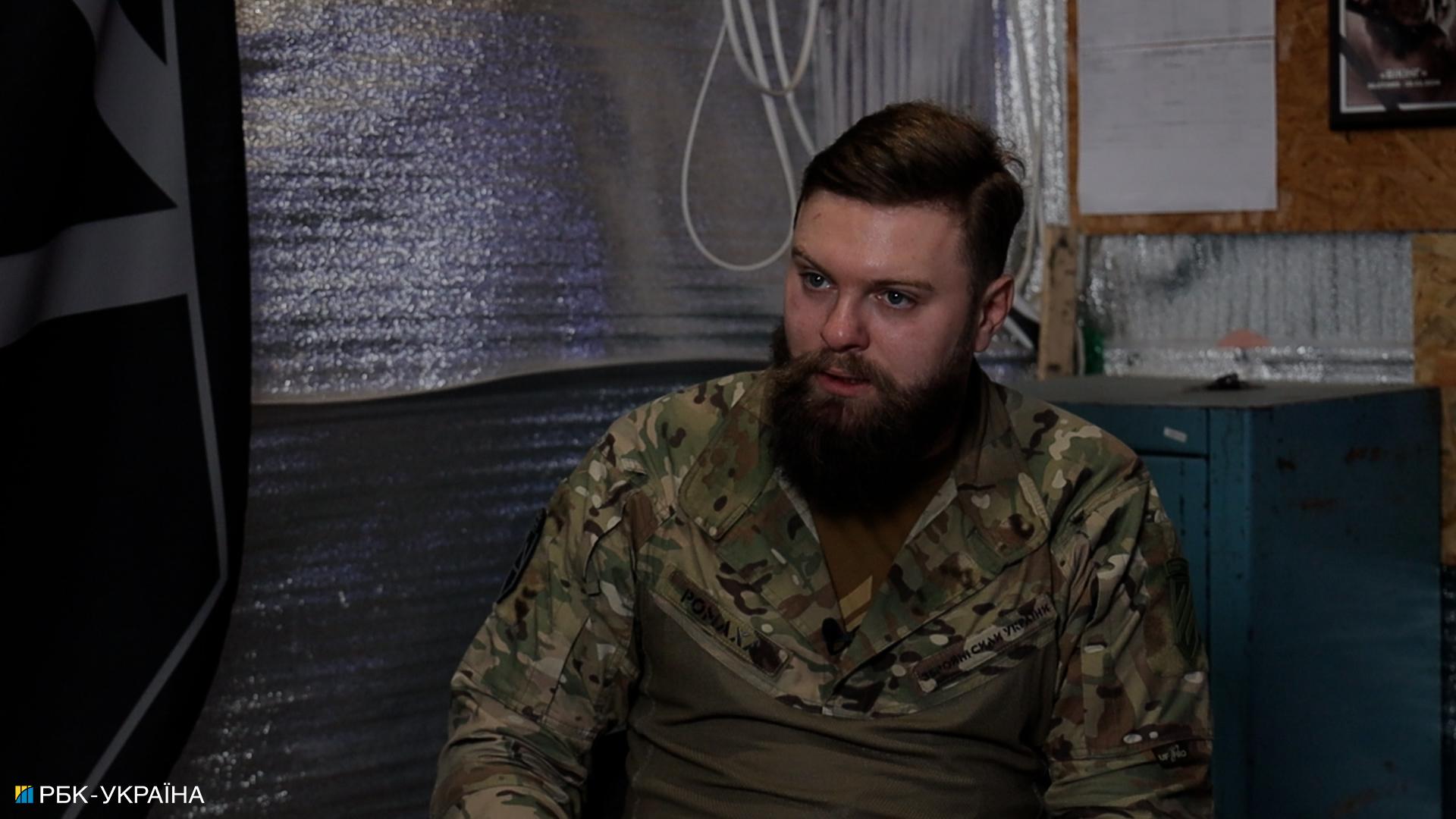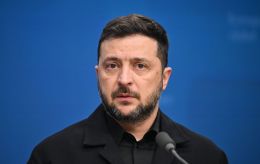3rd Assault Brigade Commander Oleh Romanov: 'Ukrainian infantry has got their teeth into ground, but for how long'
 Oleh Romakha Romanov (Photo: RBC-Ukraine)
Oleh Romakha Romanov (Photo: RBC-Ukraine)
Commander of the 3rd Separate Assault Brigade’s anti-tank battalion, Oleh (Romakha - callsign) Romanov, spoke to RBC-Ukraine about the current state of the Ukrainian army and the situation on the frontline.
Contents
Frontline situation and enemy plans
The past year of war has been particularly grueling for Ukrainian forces. Intense battles in the Donetsk region, Russia’s attempted breakthrough in Kharkiv, and the Kursk operation have provided experience but have also exhausted resources.
While much attention is currently focused on Donbas, the Kharkiv front remains highly challenging. Russian forces continuously attempt assaults in this sector. In recent weeks, they have made some gains in the region, creating a foothold to threaten supply routes toward Izium.
"Izium is a key to Donbas. It’s the last artery supplying our defensive agglomeration — Druzhkivka, Kostiantynivka — currently shielding Toretsk and Chasiv Yar. The situation in the Kharkiv direction is far from ideal," Romanov explains.
Despite concerns raised in the media, he assures that the frontline is holding.
"Our front is not collapsing; we have a strong sense of corporate responsibility. This ensures we do not fail, knowing that peaceful towns and our families are behind us. I am confident this will not change," he stated.
It is no secret that Russia vastly outmatches Ukraine in both manpower and equipment. The Ukrainian army remains critically under-armed. According to Romanov, Ukraine's failure to properly arm itself dates back to 2014. He criticizes past decisions, arguing that Ukraine was busy repairing roads instead of building ammunition factories —" without irony," he adds.
However, he acknowledges improvements. Weapon deliveries and ammunition supplies are now more timely and efficient. Even so, Ukraine is still lagging behind an enemy that, since the collapse of the Soviet Union, has been planning to seize Crimea and establish a land corridor to Russia. Beyond its current battlefield objectives, Romanov believes Russia also has its eyes on southern Ukraine, claiming it as part of its supposed imperial heritage.
Can Trump end the war
Throughout his campaign and the war, US President Donald Trump has repeatedly claimed he could end the war in 24 hours. However, after his election victory, his stance on reducing military aid remained ambiguous. He also criticized Europe for not doing enough.
There has been debate over whether former President Joe Biden provided sufficient weapons to sustain Ukraine’s counteroffensive after the successful liberation of the Kharkiv region. Unfortunately, inconsistent Western support has significantly impacted Ukraine’s defensive capabilities and future operations to reclaim occupied territory.
"Right now, Ukrainian infantry has got their tooth into the ground, but how long can they endure when some troops have been on the frontlines for 52 straight days?" Romanov asks.
While Western support is crucial, he warns against placing all hope on Trump, expecting either a swift end to the war or an escalation. In the end, Ukraine’s fate rests in the hands of its own people — no one else will put on the armor and hold the frontline.

Romanov believes that any international peacekeeping missions would quickly dominate Western headlines, pushing narratives that foreign troops should withdraw from Ukraine. "This is not the kind of war the US has fought before," he adds.
As for Trump, Romanov says that it was Trump who first authorized the transfer of Javelin anti-tank missiles to Ukraine in 2019, helping prepare for the battles that would come.
Reserves and personnel shortages
Infantry is the frontline of combat, and soldiers — both men and women — often have to remain there for extended periods simply because there are not enough troops. There is no one to replace those holding key positions, and if they withdraw without reinforcement, those positions will be lost.
“If an infantryman knew he had a set one-year term to endure and survive, he would go into each mission with that mindset. But when he is stuck in the same position for 25 days straight… He loses vigilance. He takes off his body armor, he starts neglecting his own safety,” says Romakha.
The lack of rest and rotations leads to fatal consequences. No matter how strong their motivation, physical and mental exhaustion is inevitable. To maintain an effective defense, soldiers need reinforcements—not just for combat effectiveness but to allow them some relief and recovery.
“Unfortunately, a soldier adapts to his surroundings, and this battlefield is the most extreme on the planet. This isn’t some conflict with pirates guarding oil shipments in the Niger Delta. This is the bloodiest war since World War II,” Romanov states.
The issue of personnel replenishment is now the most critical. Russian psychological operations (PsyOps) are spreading narratives online about “draft dodging,” while at the same time, Ukraine has failed in its own communication strategy regarding mobilization.
“No one will willingly join the army when TikTok is flooded with content discrediting the Ukrainian military. TikTok has been banned in the army since early 2022 because it’s a tool for destabilizing nations and spreading disinformation. But this tool can be used both ways. I believe our Ministry of Culture’s budget should have been invested in winning this information war,” Romanov argues.

Financial compensation is another key factor. The enemy has an advantage in this area as well, offering large payments even at the local level to attract recruits. A Russian soldier signs a contract, receives $30,000, and can settle all his financial concerns. Ukraine must also find resources to offer competitive pay, as financial security serves as a powerful motivator for mobilization, Romanov believes.
Motivation in the Third Assault Brigade
The personnel of the 3rd Assault Brigade is highly diverse. In addition to those who fought in the Kyiv campaign during the brigade’s formation, it now includes contract soldiers, mobilized troops, former prisoners, and foreign volunteers. Many specifically requested to join the anti-tank battalion commanded by Romanov.
“At some point, the right personnel decisions paid off, and now people stand firm. We had one fighter operating FPV drones but wanted to move into infantry. During one mission, he got wounded in the chest, but he managed to take out three enemies, participated in several assaults, and held a defensive position alone for a time. He joined recently as a drone operator. Is there motivation? Absolutely. And it's not just because we are the Third Assault Brigade,” Romanov says.
Battles near Izium
The 3rd Assault Brigade is currently operating in the Kharkiv sector. Despite the brigade’s continuous repositioning and efforts to dig backup defensive positions, the enemy is making certain advances. However, some defensive lines become obsolete for various reasons, forcing troops to dig new ones.
“To be honest, we are standing on very thin ice right now because we simply don’t have enough infantry for such an extensive frontline,” says Romakha.
With too few soldiers holding vast defensive lines, gaps inevitably appear — gaps that the enemy exploits. The Russian tactic is to find these weak spots and infiltrate them with small infantry groups to push further into Ukrainian defenses.
“Today, they managed to get dangerously close to one of my positions. We sent in a clearing team to repel them. However, this creates problems because these anti-tank specialists need to be ready in case a mechanized assault begins. How can they do their job when they’re engaged in direct firefights?” the commander explains.
Fortifications
Ukrainian forces are forced to conduct tactical withdrawals on many parts of the front. Unfortunately, a pattern has emerged — repeating past mistakes and expecting a different outcome. According to Romakha, the core issue is the poor quality of fortifications along the frontline.
“To hold the line, we need proper fortifications built not by civilian contractors but by military engineering units. What’s being built around Izium right now — it’s a joke. Are we defending open fields? These defenses should be in forest belts, with clear firing lanes cut in front of them, so the enemy can’t just creep up under cover of bushes,” Romakha argues.
He believes civilian workers, unfamiliar with military realities, lack the experience and the incentive to build effective defenses. Those who serve on the frontlines understand the enemy’s tactics, troop numbers, and resource needs — making them far better suited.

No one expects the war to end overnight. Cities won’t liberate themselves, and waiting for a miracle is futile. The front line is shifting—sometimes slowly, sometimes more rapidly as the enemy captures settlements.
Summing up our conversation, the commander asserts that Ukraine must now focus on long-term defensive resilience. The primary goal is to straighten the front as much as possible, minimizing vulnerable salients and isolated positions.
“We must prepare for a long, grueling war—possibly even the loss of the entire state if we don’t come together and take action. Everyone needs to contribute to our collective success. We have to work like bees in a hive to protect the swarm so we can continue living in Ukraine.”

